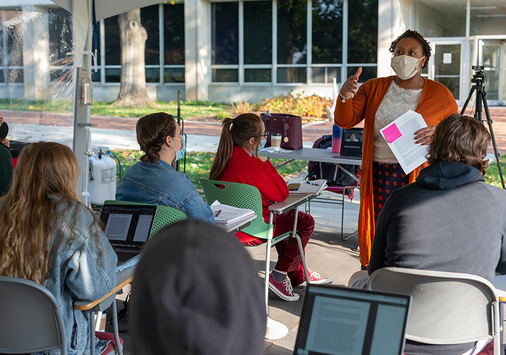About
Why Global Health?
Sustained importance of an emerging discipline.
Global health majors are uniquely positioned to evaluate the patterns and societal issues associated with understanding and responses to diseases. They will have the ability to understand, evaluate, and critically assess health from a global perspective and can contribute to multiple sectors of society.
The global health major is geared to provide critical exposure to applied and experiential-based learning to understand health from a local yet global context. Interdisciplinarity is at the core of the discipline of global health. Students will examine critical problems and methodologies that are specific to global health as well as additional fine arts, humanities, social and natural science disciplines.
Students are immersed in the field through a core set of six global health courses, two elective courses, two consecutive language courses (beyond the general education requirement), and an experiential learning component, during which students apply ethical approaches in global health research and practice, and display critical self-reflection, cultural humility and ongoing learning in global health.
Central to the global health major is a critical examination of health disparities, the interaction between health and the environment, and the burden of disease and mortality. Global health majors will analyze quantitative and qualitative data in order to inform policy and programmatic change. Upon completion of the major, students will be competent in addressing global health issues with a critical lens and from a culturally relevant perspective.






